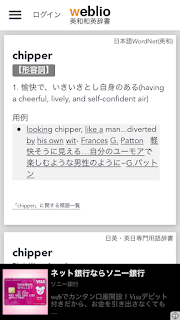★外国人向けの日本語説明。参考になる部分多し!
p10
”
Japanese sounds
Japanese sounds must be pronounced with precision, especially in vowel pronunciation, to be understood by native Japanese speakers.
Vowels
in short, each Japanese vowel has a single sound, as spoken in the following words:
a as in father
i as in sushi
u as in rude
e as in egg
o as in oat
Sometimes, Japanese vowels are pronounced in two beats in stead of one, for e.t., the word
sŌji, or " cleaning," , which would be
so'oji.
This book follows standard convention by using macrons(lines) over all double vowels except
i, where the double ii sound is represented as
ii.
It is important to be aware of this nuance of pronunciation, as the length of a vowel can change the meaning of a word completely. For example,
hodŌ means " sidewalk," but
hŌdŌ means "news report."
In regular Japanese conversation, the
i and
u sounds are often not heard at all.
For example, the name
Matsushita becomes
Matsush'ta, and
kusuri, meaning "medicine," becomes
k'suri. De-emphasis of
i and
u is especailly common after the
sh an
k sounds.
Consonants
Japanese
consonants are generally similar to English ones, but there are some important differences.
F The Japanese ear doesn't distinguish between the English
f and
h sounds.
(
On some maps of Japan rendered into English by Japanse speakers, Mr.Fuji may be written as "Mt.Huji".)
The Japanese
f is not a strong
f sound, but is halfway between the English
f and
h, like an
f sound in which the upper teeth do not meet the lower lip, and air is forced out through narrowed lips.
G Always
g, as in " gate." Often softened into
ng, as in "sing".
R The Japanese
r hovers somewhere between the English
r and
l.
As with the English
l, the tongue is placed on the ridge behind the upper teeth, but with a lighter touch.
Like vowels, consonants are sometimes pronounced in two beats.
You pronounce the double consonants by holding your breath for one beat right before the double consonant.
For example,
katta would be pronounced,
ka-(pause)-
ta.
Again, this is a crucial distinction, because a word's meaning can utterly change as the result of just a single doubled sound.
Doubling is especially common for
t, p, and
k.
This book expresses doubled consonants as double letters:
tt, pp, kk, etc.
Unlike English, in which every multi syllabic word stresses a particular syllable, Japanese does not stress syllables at all.
For instance, although the Japanese word for "banana" is very similar to the English, the pronunciation is considerably different.
The Japanese word is pronounced
ba-na-na, with each
a sounding like the
a in "father", each syllable having equal intensity.
While stress is not important, however, proper pitch can change the unspoken message and mood.
Japanese language books commonly explain that the subject of a sentence is marked by
wa, or in certain cases,
ga.
This is not, in fact, always the case.
But, for our minimal needs, we'll simplify life by designating
wa- and
ga- marked words as subjects.
Wa and
ga are called particles and they connect words together, similar to prepositions in English.
P12
Mearii wa ( kaerimashita ).
Mary ( went home )
Note that there is no difference between singular and plural subjects in Japanese.
Like much in the language, they are inferred from context.
THE SENTENCE SUBJECT OR TOPIC
Unlike in English, the subject or focus of the sentence in Japanese is often unspoken, implied instead through context.
In fact, using the subject sometimes overemphasizes it, flooding it with metaphorical spotlights and exclamation points.
This is a pitfall for foreigners learning Japanese, who would are accustomed to adding in subjects, as they would normally do in their native language.
In the examples below, the subjects "I" ad "flower" are left unsaid.
I am Mary.
(Watashi wa) Mearii desu.
(I) Mary am.
The flower was pretty.
(Hana wa) Kirei deshita.
(Flower) Pretty was.
Even though the speaker may not state the subject explicitly, it should be clear; context remedies ambiguity.
It is a deeply embedded Japanese cultural and linguistic trait to prefer saying and explaining as little as possible.
Proficiency in Japanese requires substantial patience and intuition for the unsaid.
Think of Japanese as a minimalist language, in company with traditional Japanese design and aesthetics.
http://amzn.asia/6wIwFLX





















